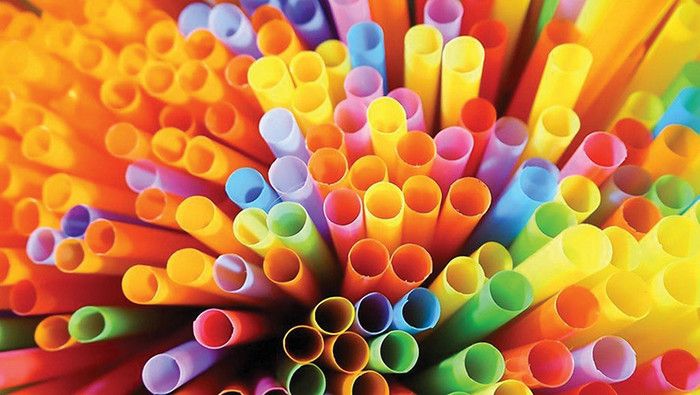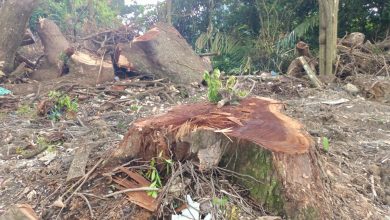Ban Bad Straws


By Ili Aqilah
Ipohites produced 500 to 520 tons of waste every day and the statistics will go up higher during festive seasons. The wastes comprise food, garden waste, electrical goods and of course, plastics. These days we can see most everything around us are made of plastic and while many are biodegradable, what happens to the ones that are not recyclable especially single-use plastics such as straws?
With its growing population, it is without a doubt that Ipoh will soon be producing more plastic wastes by the day. Is Ipoh ready to follow its neighbours and ban the single-use plastic straw? Can Ipoh be a straw-less city?
Plastic Is Not Fantastic


It was announced in September this year that Federal Territories of Kuala Lumpur, Putrajaya and Labuan will ban the usage of plastic straws, and beginning from January 1, 2019, businesses found using plastic straws will face serious charges including losing their deposits, fined and owners even be imprisoned.
“I hope that business owners will cooperate and follow the requirements for the greater good of the environment.” said Ministry secretary-general, Datuk Seri Adnan Mohd Ikhsan in September. He also added that since the requirement is stated clearly, there is no excuse for business owners’ ignorance.
In addition to the plastic straw, Federal Territories has also banned plastic bags and polystyrene food packaging from September last year.
Will the Government Step Up?
Back in 2016, former state councillor for Education, Science, Environment and Green Technology, Datuk Dr Muhammad Amin Zakaria announced that Perak will ban the usage of plastic and polystyrene and the ban will be extended statewide from January 2017.
However, till today we can clearly see that it isn’t working as no action has been taken as Perakeans are still freely using non-degradable plastic.
In addition to Amin’s statement, a statement was made by Ipoh Mayor, Datuk Zamri Man regarding the same issue on the same year. According to the mayor, businesses can charge 20 to 30 sen per plastic bag to customers who wish to use plastic bags and MBI will organise more events to encourage the public to use less plastic bags.


However, till today, aside from charging customers for plastic bags, the Perak government has yet said nothing about banning the usage of plastic straws. With the upcoming state assembly scheduled this month, will we be hearing about this issue or will it be forgotten?
“Ipoh can be a straw-less city like the Federal Territories, but it will take us time as many are still unaware about the harm of plastic straws,” said Aziz Bari, state councillor for Education, Technology, Science and Environment.
What’s Wrong With Plastic Straws?


In her interview with National Geographic this year, while collecting data on sea turtle mating, they found something in the nose of a 35kg sea creature. Since they were hours away from a vet, the team knew they had to remove it themselves. Christine was not sure how the straw ended up there, but the experts believe that it could have swallowed the straw and tried to regurgitate it back up.
Christine’s video wasn’t the only proof on the dangers of plastic straws. A quick research on your favourite search engine can show various cases of animals affected by plastics. In fact, in a study done by Oona M. Lonnstedt and Peter Eklov in 2016 found that baby perch will actively choose to eat plastics over plankton and this will increase mortality.
Microplastics in Malaysian Fish


“Our food chain is now contaminated with microplastic. Although it is ‘micro’ it could slowly affect the lifespan of humans and hopefully the government will do something about it. We have many biodegradable materials to replace the usage of plastic such as banana leaves, hemp and vegetable waste that can be converted into organic-plastic or perhaps create a biodegradable replacement. This is where the government needs to play its role and support on a bigger scale,” said Hafizudin Nasarudin, the current president of Persatuan Aktivis Kuasa Alam / The Society of Environmentalists (KUASA).
Ipoh Without Straws?


“We are still using plastic straws, but my team and I are working hard to find a supplier that could provide us a reasonable price for alternative straws that are made from paper, metal or bamboo. As for now, we only provide straws when the customers ask for it,” said Nabihah.
She also added that aside from finding suppliers, she is also trying to find alternative ways to replace plastic packaging and plastic straws for takeaways.
“It hurt me when I saw the sea-turtle videos so I’m working hard to find a solution to not use plastic straws and packaging as I know how it will affect sea animals,” she added.
As for Susan Ho, she believes that instead of cutting down on giving straws, customers should just opt not to take straws from hawkers voluntarily.
“Substitute straws are not easy to find and expensive – both for paper and metal straws. Perhaps we can ask customers to pay for it like how Selangor made people pay for plastic bags. Of course, they will get upset but after a while they will accept it,” said Susan on behalf of her mother who owns a hawker stall in Ipoh.
Sipping Without Plastic


After using metal straws for nearly two months, Ainina Sofia hopes she can be consistent and encourage more people to ditch the plastic and start using metal straws instead,
“The awareness reached me months ago after I watched various videos of animals choking on plastic straws. One even had a straw stuck in its nose. However, it wasn’t until several months ago that I found a solution to reduce straw and plastic pollution.
“I believe that every F&N outlet must stop providing plastic straws. It’s a process of educating the public but once it becomes a norm, it will not be a problem anymore,” added Ainina.
Recycle and Reuse


You can make crafts with plastic straws! Tutorials of how to create one can easily be found from YouTube or Pinterest.


Another way to reuse your plastic straw is to turn them into ecobricks; a plastic bottle stuffed with non-biodegradable items that can be used to created furniture and many more. According to Russell Meir, one of the co-founders and principal of the South East Asian Ecobrick movements, after his visit to Northern Philippine Cordilleras, the land of the Igorot people, Meir learnt that in their native language, there is no concept of waste or worthless among the Igorot people. Everything in Cordilleras including bowls, tools, packaging and even houses are locally sourced and can be reused locally and personally in some new way.
“There is no need to wait for the next eco-innovation or technological breakthrough. Co-creating a thriving, harmonious world is as simple, and as momentous, as losing some words, and learning some new ones,” said Meir.
According to Ecobricks website (www.ecobricks.org), the concept of ecobricks is about going against the general idea people have about plastic. It is not a ‘trash’ or a garbage’ but rather as a resource to create new things that can be used. Not only is it an ideal way for a deeper solution to plastic, ecobricks will also help plastic in the recycling industry.
There are many things you can create using your own ecobrick, in fact in their website, 99% of ecobricks are being used for small homes, school and community creations such as tiny applications like furniture models. More information about ecobricks movement can be found on their website!
What Will Happen After 12 Years?
Early this month, the United Nations (UN) warned that we have only a 12-year period to limit the climate change catastrophe of our planet as it will not be able to sustain itself. Climate change will affect pollination of crops and plants, insects will lose half of their habitat and 99% of corals will be lost if the earth’s temperature goes higher.
Plastic plays a crucial role in climate changes as most of them are made from oil and gas that come from fossil fuels extracted from the ground. Getting the fuel involves transportation, manufacturing and disposal which comes together with tonnes of carbon pollution.
Sure, the carbon footprint to make your average disposable plastic bottle is only 82.3g but we used 563 billion single-use plastic bottles every year and it is increasing. That means, through the production of plastic bottles alone, we created 46 billion tons of carbon footprints.
Carbon print is the sum of all emissions of Carbon Dioxide that contribute to raising the earth temperature. The higher it gets, the more danger we are in. We can see many natural disasters happening in the past few years and that is not a coincidence, thanks to our ignorance about the usage of plastic.
The Multiplier Factor
One person using one plastic straw may not impact the earth but in Ipoh alone, we have over 670,000 Ipohites. Imagine 670K plastic straws being used daily, monthly and annually. Although you might argue that some plastic straw packing claims that it is recyclable, you should also be informed that plastic will never fully degrade as plastic is not a biodegradable material and even degrading plastic releases chemicals that are toxic to wildlife and the environment.


Be More Responsible, Start Now!
Why do we need for the government to implement rules when we can start to not use plastic straws by ourselves? We keep on parading the phrase ‘New Malaysia’ yet our mindset is still as before when we remain unaware of what is happening to our planet and our country and our state.
A plastic straw is easy and free but what will happen at the end of our last fossil fuels? Should we wait to witness the last sea turtle or the last tree or don’t we care about our planet at all? Mars might be a new planet for us according to NASA but do you know that the weather in Mars is extreme and the air is largely carbon dioxide which means that it is good for the planet but bad for people? Since it may take us years to find a new hospitable planet to reside, isn’t it time to take care of our current planet?
Stop sipping through your plastic straw now, choose earth instead.


